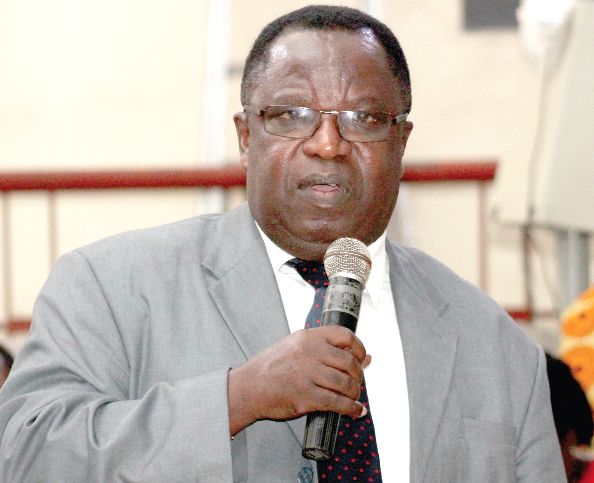
Expect buoyant banking sector — Consultant
Banking consultant, Nana Otuo Acheampong, is predicting a rebound in public confidence in the banking sector following the successful completion of the Bank of Ghana’s (BoG) reforms and the recapitalisation of the industry to GH¢400 million per bank.
He said while the reforms had produced a stronger and resilient banking sector, the successful recapitalisation of banks from GH¢120 million to GH¢400 million meant that “we now have stronger banks with better resources to look after customers’ interest.”
“The result is a possible drop in non-performing loans and interest rates in the coming months”, Nana Otuo Acheampong told the Daily Graphic in an interview.
Consequently, he advised the public to have faith in the remaining 23 banks as they were better placed now than before to meet the financial needs of customers.
He, however, reminded the BoG Governor, Dr Ernest Addison, that Ghanaians had taken him by his word that he would ensure that the challenges that prompted the banking sector clean-up would not be repeated.
Advertisement
He said the governor’s assurance to ensure proper supervision in the future was key to ensuring that the country fully harnessed the fruits of the clean-up exercise.
Reform exercise
Nana Otuo Acheampong was speaking a few days after the BoG drew the curtains on a massive banking sector clean-up exercise and a recapitalisation directive.
Cumulatively, the implementation of the two reforms saw nine banks collapse, one moved from a bank to a savings and loans company and five which are being supported by a government-sponsored arrangement to meet the GH¢400 million capital directive.
The exercise started in early 2017 and aimed to cleanse the sector of banks considered weak and insolvent which were posing a major risk to the soundness of the banking sector and the economy in general.
It cost the country some GH¢12 billion, the central bank Governor, Dr Addison, said at a press conference on January 4.
Fewer but better
Nana Otuo Acheampong said although the exercise, which has since drawn mixed public reactions, had reduced the number of banks from 36 in 2017 to 23 currently, and had produced a banking sector that was more liquid, robust and resilient than before.
With regards to capital, he said around 2017 when the country had 36 banks in operation and the minimum capital was GH¢120 million, the total capitalisation of the industry was around GH¢4.3 billion.
However, with 23 banks and the minimum capital at GH¢400 million, Nana Otuo Acheampong said the total paid up capital of the banking sector was now around GH¢9.2 billion, more than double the total amount prior to the competition of the recapitalisation directive.
In addition to the five banks receiving support from the Ghana Amalgamated Trust (GAT) to recapitalise, banks that are merging are yet to complete their capitalisation.
Quality loans
Asked how these developments will be of benefit to bank customers, Nana Otuo Acheampong said a strict implementation of the capital requirement directive would ensure that NPLs were “brought down to the barest minimum.”
“This should translate into a reduction in the cost of credit to individuals and businesses”, Nana Otuo Acheampong said.
He explained that the directive would ensure that banks did not just disburse loans but granted them to borrowers that would be able to repay.
“So customers can be reassured that the banks will give them good quality loans to enable them to repay. Once a bank can grant a good quality loan, it means that interest rates will also come down,” he said.
Interest rates are computed using a variety of factors, including risk premium which measures a borrowers’ ability to repay the bank’s commission and cost of funds.
He, thus, charged the BoG to ensure that the banks complied with the directive to help ease the cost of credit in the country.
